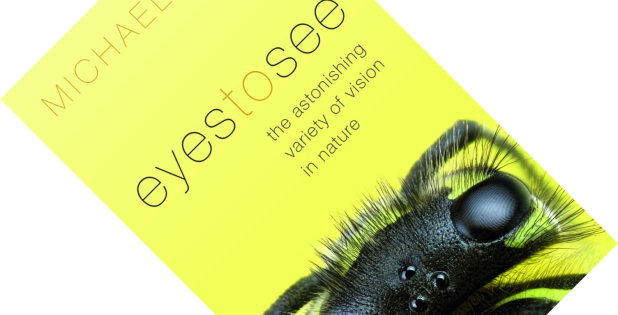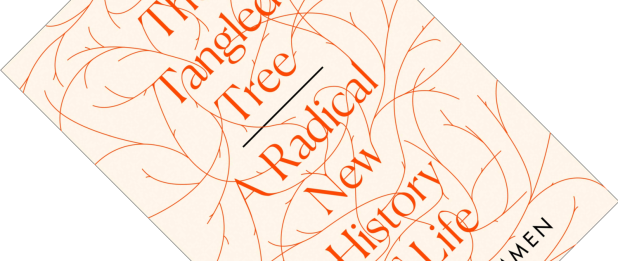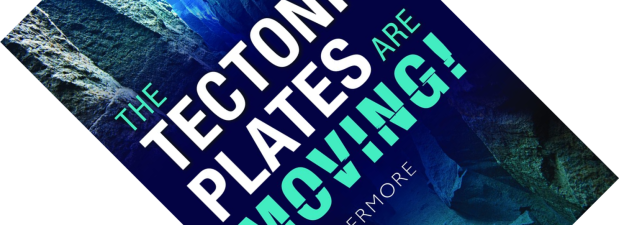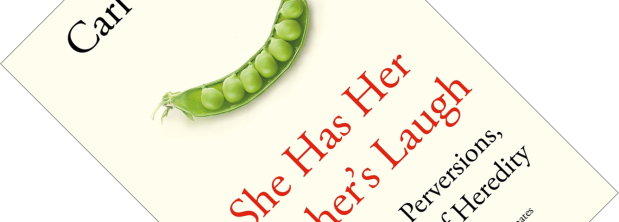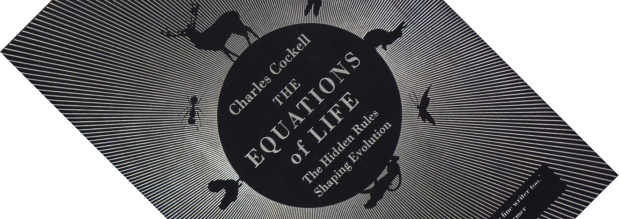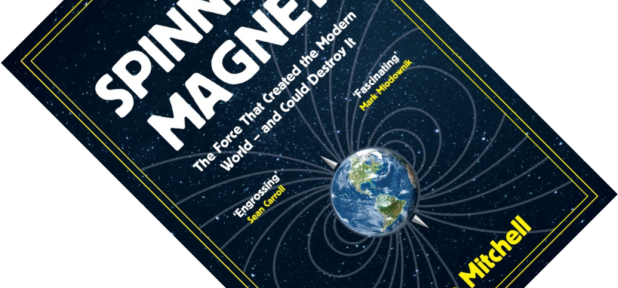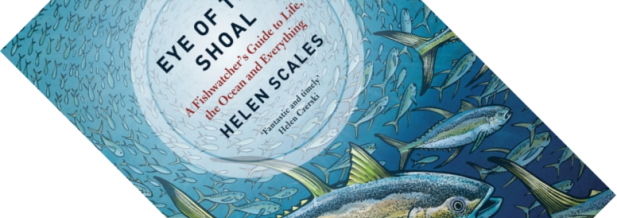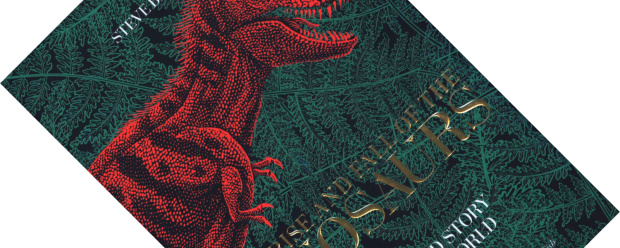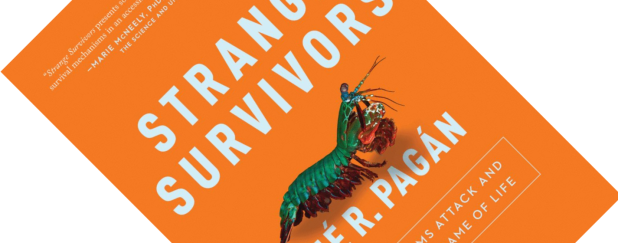When it comes to social insects, ants and bees get all the love. But, if you pardon the pun of the book’s title, termites are a bit of an underbug. While finishing up a previous writing assignment, author Lisa Margonelli got on the trail of the termite sometime in 2008 and spend the next decade obsessing over them. Tailing various scientists and sitting in on their day-to-day work, she here spins a wide-ranging tale about termites and the research they have inspired. The result is a hypnotic book that ranges well beyond this humble insect.
popular science
Book review – Eyes to See: The Astonishing Variety of Vision in Nature
I spy, I spy with my little eye… humans are visually oriented creatures and eyes are fascinating organs. Michael Land, an emeritus (i.e. retired) professor in neurobiology at the University of Sussex, is a world expert on eyes, having studied vision for over 50 years. Next to hundreds of papers, he co-authored the textbook Animal Eyes, which was published in a second edition in 2012, and the short primer The Eye: A Very Short Introduction. Eyes to See is his opportunity to reflect on a long career and simultaneously showcase the astonishing variety of vision, as the book’s subtitle would have it.
Book review – The Tangled Tree: A Radical New History of Life
After I recently finished Carl Zimmer’s new book She Has Her Mother’s Laugh: The Powers, Perversions, and Potential of Heredity, I noticed there was one mechanism of heredity he mentioned only ever so briefly: horizontal gene transfer. Since it does not play a large role in humans, it is understandable he left it aside. And doing it justice would have required almost another book. Luckily, science writer David Quammen is here to give us that book.
Book review – The Tectonic Plates are Moving!
What has plate tectonics ever done for us? Not having studied geology, I have a basic understanding of the movement of earth’s continents, but this book made me appreciate just how much of current geology it underpins. Marine geophysicist Roy Livermore, who retired from the British Antarctic Survey in 2006 after a 20-year career, convincingly shows here that the discovery and acceptance of plate tectonics was a turning point in geology, on par with Darwin’s formulation of evolution by natural selection. To paraphrase evolutionary biologist Theodosius Dobzhansky: nothing in geology makes sense except in the light of plate tectonics.
Book review – She Has Her Mother’s Laugh: The Powers, Perversions, and Potential of Heredity
If Charles Darwin were to walk into my office today and ask me: “So, what did I miss?” I think I would sit the good man down with a copy of She Has Her Mother’s Laugh, telling him: “Here, this should get you up to speed”. Darwin struggled to explain how traits were being inherited from generation to generation. As New York Times columnist Carl Zimmer shows in this wide-ranging book, the story of heredity has turned out to be both diverse and wonderful, but has also been misappropriated to prop up some horrible ideologies.
Book review – The Equations of Life: The Hidden Rules Shaping Evolution
Starting your book blurb by asking why gazelles have legs rather than wheels is a suitably out-there question to immediately grab a reader’s attention. A more pertinent question then; why is all life based on carbon rather than silicon? In The Equations of Life, Charles Cockell takes the reader on a giddy tour down the organisational hierarchy of life – from sociobiology to subatomic particles – to show that nature is far more predictable and understandable than it might appear at first blush. His eloquent answer to above and other why questions? “Because physics is life’s silent commander”.
Book review – The Spinning Magnet: The Force That Created the Modern World – and Could Destroy It
If you have used a compass, you will know our planet has a magnetic North and South pole. You might even be aware that the geographical and magnetic poles are not exactly in the same location. The magnetic poles have a tendency to wander with time. They can even swap places, and we have evidence of a long history of such geomagnetic reversals in the rock record. But how does this happen? And what would the consequences be if this happened today? Earth’s magnetic field offers protection against radiation from outer space, primarily from the sun, so if this field weakens or changes, what will happen to us and our electrical infrastructure? Join science journalist Alanna Mitchell as she explores this topic and delves into the history of electromagnetism.
Book review – Eye of the Shoal: A Fish-Watcher’s Guide to Life, the Ocean and Everything
Helen Scales is a marine biologist, diver, and surfer, and is no stranger to writing good books. I have previously read Poseidon’s Steed: The Story of Seahorses, from Myth to Reality from her hand. The book after that, Spirals in Time: The Secret Life and Curious Afterlife of Seashells, received critical praise in the press and was shortlisted for the Royal Society of Biology book prize. Here, Scales turns her attention to fish. Is this another page-turner waiting to be recognised?
Book review – The Rise and Fall of the Dinosaurs: The Untold Story of a Lost World
Dinosaurs. You could fill a library with the books written about them. Why write another one? Because the field is moving fast: new fossils are constantly being found, new species are being described, and new techniques allow us to ask completely new questions. Being a young career-palaeontologist at the top of your field is another good reason. And Steve Brusatte does not lack ambition. Rather than singling out any one topic, The Rise and Fall of the Dinosaurs gives you the whole epic story, from the early beginnings right up to the abrupt end. Given the brief Brusatte has set himself he obviously doesn’t cover everything exhaustively, but he succeeds admirably in giving you a very relevant overview of where we are now.
Book review – Strange Survivors: How Organisms Attack and Defend in the Game of Life
From the perspective of biology, the rules for the game of life are simple: acquire energy, avoid becoming food for someone else in the process, and pass on your genetic information. This simple theme has given rise to an incredibly rich and diverse panoply of approaches and solutions. Strange Survivors, written by Puerto Rican biologist Oné R. Pagán, is a love letter to the many wonders that biology has to offer. I am sure he would approve if I said: “Prepare to be amazed!”


